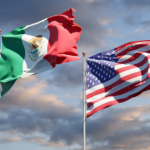In the realm of Mexican international trade, the term “PAMA” stands for the “Programa de Auditoría al Comercio Exterior y de Asistencia al Cumplimiento,” which translates to the “Foreign Trade Audit and Compliance Assistance Program.” This program is an integral part of the initiatives undertaken by the Tax Administration Service (SAT) and the Mexican Customs Authority to monitor and verify compliance with customs and tax regulations related to international trade.
The primary objective of the PAMA is to confirm that companies engaged in international trade in Mexico meet all customs, tax, and regulatory obligations set forth by the authorities. These audits may encompass a review of the documentation related to imports and exports, as well as an inspection of the customs processes and procedures employed by the companies.
The PAMA in international trade serves as a vital tool in ensuring the legality and transparency of international trade operations and preventing smuggling, tax evasion, and other illicit practices in this domain. Companies involved in international trade must be prepared to undergo audits under this program and adhere to the current customs and tax regulations. Non-compliance with these regulations can result in substantial penalties.
To avoid issues or penalties in Mexican international trade and ensure compliance with customs and tax regulations, it is crucial to follow some key practices:
1. Familiarize Yourself with Regulations:
Research and understand the customs and tax regulations applicable to international trade in Mexico. This includes the Customs Law, free trade agreements, tariffs, specific regulations for certain products, and tax obligations.
2. Accurate Tariff Classification:
Ensure that the products you import or export are correctly classified according to the corresponding tariff code. Use the General Import and Export Duty Law Tariff to do this.
3. Precise Documentation:
Maintain accurate records of all international trade transactions. Ensure that documentation, such as invoices, pedimentos (customs declarations), certificates of origin, and other customs documents, is complete and accurate.
4. Engage Customs Brokers:
Hire a certified customs broker to assist you in the import and export process. These professionals are knowledgeable about customs regulations and can help you meet the requirements correctly.
5. Meet Tax Obligations:
Pay taxes and duties promptly and in full. This includes the Value Added Tax (IVA) and the Special Tax on Production and Services (IEPS), if applicable.
6. Verify Legitimacy of Business Partners:
Before engaging in transactions with other companies, verify their legitimacy and ensure they comply with all regulations. This may involve checking their registration in the Federal Taxpayers Registry (RFC) and other relevant records.
7. Maintain Strong Internal Controls:
Implement robust internal procedures for recording operations and complying with customs and tax obligations. This includes segregating duties and periodically reviewing processes.
8. Continuous Training:
Provide training to your staff on international trade and customs regulations. Keep your team updated on changes in laws and regulations.
9. Collaborate with Authorities:
Always cooperate with customs and tax authorities during audits or inspections. Provide the required information and documentation in a timely and honest manner.
10. Regular Internal Audits:
Conduct regular internal audits to identify and rectify potential compliance issues before formal audits by authorities.
Fostering a culture of compliance and transparency in your international trade operations is fundamental to avoiding legal and tax problems. Expert guidance in international trade and collaboration with authorities can help you maintain a successful business while adhering to all applicable regulations.










